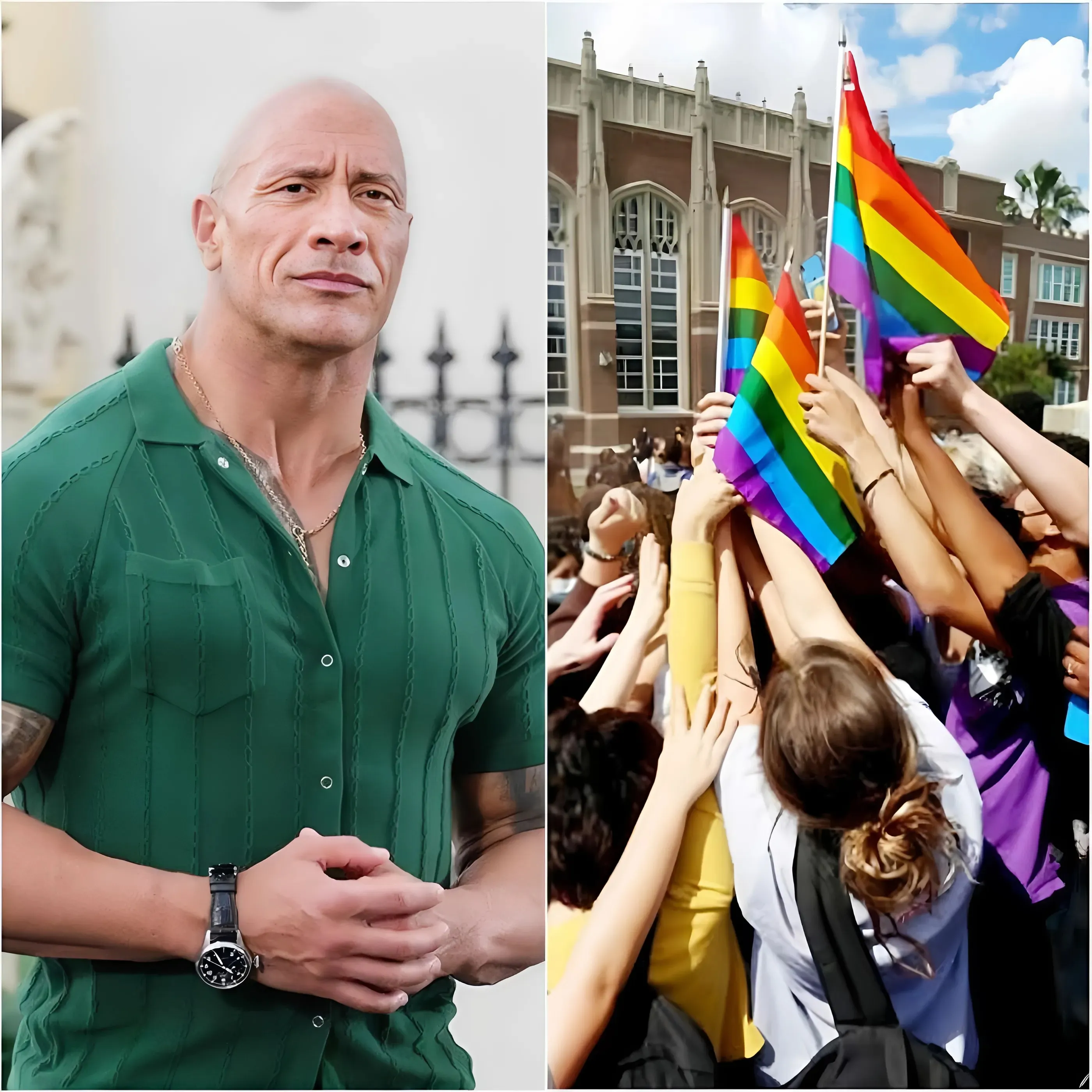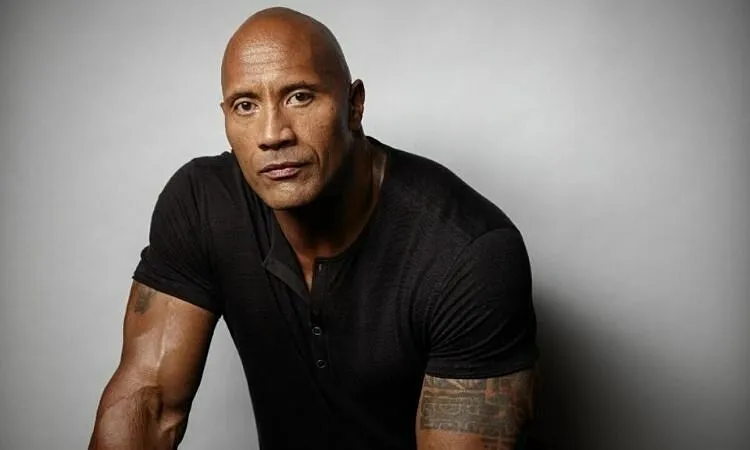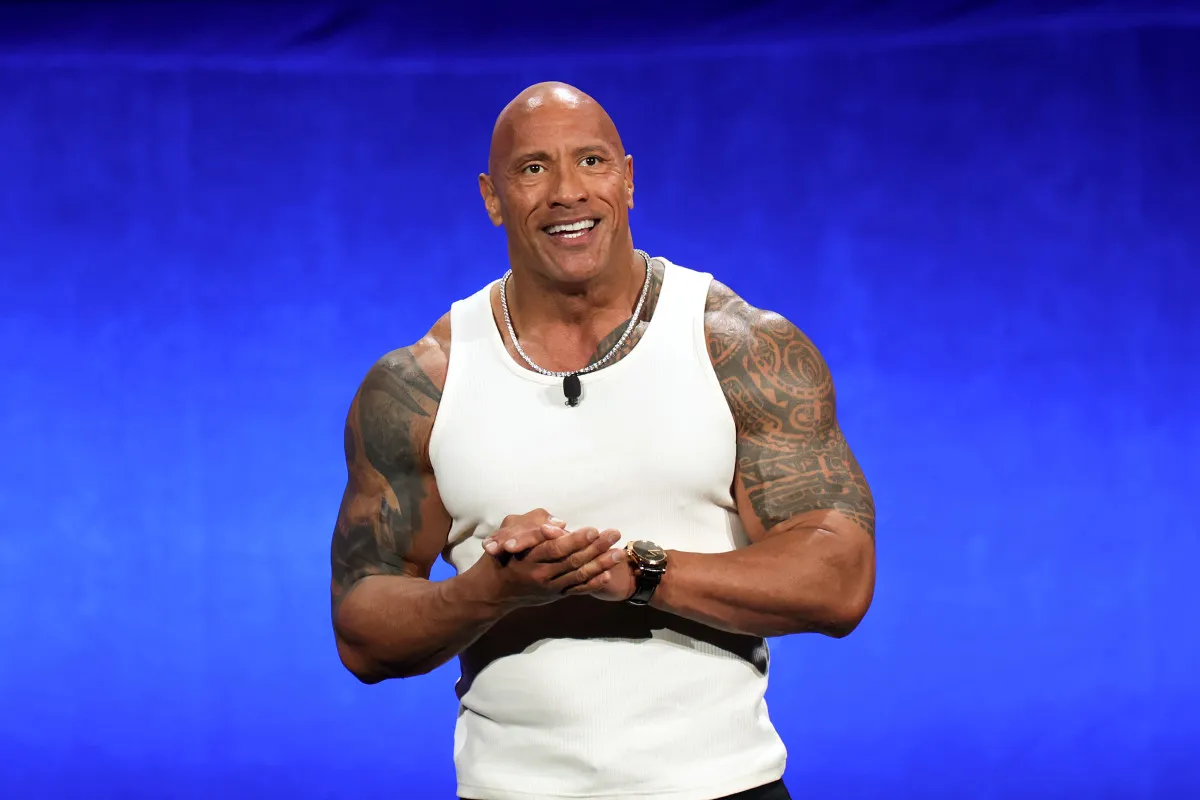In a surprising move that has taken the entertainment industry by storm, Dwayne “The Rock” Johnson has officially turned down a $200 million offer from Disney, revealing that he will not participate in what he terms as “woke culture.” The decision has sent shockwaves through Hollywood, leaving fans, critics, and industry insiders alike questioning his reasoning and the larger implications for the future of big-budget films and the evolving entertainment landscape.

The $200 million role, which was offered to The Rock by Disney, would have seen him star in a highly anticipated project set to be a major part of the studio’s upcoming slate.
However, Johnson’s refusal to take part in the project has raised eyebrows, as Disney has long been known for its commitment to diversity, inclusivity, and representation in its content. These values, while championed by many, have also faced backlash from a portion of the audience who feel that Hollywood is becoming overly politicized.

The Rock’s decision to forgo this lucrative opportunity has sparked an ongoing debate about the influence of social and political movements on entertainment. In an exclusive statement, Johnson explained his stance, citing his belief that entertainment should be inclusive and represent a variety of perspectives, but that the focus on pushing a particular ideology could ultimately alienate audiences.
“I want to create content that resonates with everyone, not just a specific group,” he said. “I believe that entertainment should be a reflection of all walks of life, and while inclusivity is important, I am not interested in being part of a culture that prioritizes ideology over creativity and storytelling.”

The actor’s comments highlight a growing divide between the entertainment industry’s increasing emphasis on diversity and inclusion and a segment of the audience that feels uncomfortable with what they perceive as a forced narrative. This sentiment, often referred to as “woke culture,” has become a hot-button issue in recent years, with some claiming that Hollywood has gone too far in its efforts to cater to social movements.
Johnson’s move to distance himself from this trend may be seen as a bold stand in an industry where taking risks can often be detrimental to one’s career. Despite his massive popularity and success, The Rock has always maintained a reputation for being outspoken and independent-minded, and his decision to reject the Disney role is consistent with that persona. The actor has made it clear that he values creative freedom and is willing to walk away from enormous sums of money if it means staying true to his principles.
The $200 million offer from Disney was not just any role; it was a once-in-a-lifetime opportunity that would have likely been the biggest payday of Johnson’s career. In fact, it would have been one of the highest-paying roles in Hollywood history. This makes his decision even more striking, as many in the industry believe that he could have had a lasting impact on the project and reaped the rewards of his involvement. However, The Rock’s comments suggest that his priorities are more aligned with his own values rather than monetary gain.
Disney, meanwhile, has not publicly commented on Johnson’s refusal of the offer. However, industry sources have speculated that the studio might be rethinking its approach to talent recruitment and project development. Some believe that Disney, in its pursuit of more inclusive content, might have overlooked the personal and professional boundaries of actors like Johnson, who have always prioritized authenticity in their work.
This incident also raises questions about the direction in which the entertainment industry is headed. As audiences continue to demand more representation and inclusivity on screen, the pressure on studios to align with these values has never been greater. However, as The Rock’s decision demonstrates, not all actors are willing to conform to the pressures of the moment, especially when it conflicts with their own creative vision.
Johnson’s refusal also signals a potential shift in the way audiences engage with popular culture. It’s no secret that the entertainment industry has been facing increasing scrutiny from fans who feel that certain ideologies are being pushed onto them through films and television shows. The rise of social media has amplified these voices, giving individuals the platform to express their frustrations and call out what they see as performative activism.
This phenomenon is part of a larger cultural reckoning that is taking place across various industries, including entertainment. The debate over “woke culture” is not confined to Hollywood; it has become a topic of national conversation, with people on both sides of the argument passionately defending their viewpoints. Some argue that the push for inclusivity and representation is long overdue, while others feel that it has been taken to an extreme, leading to what they perceive as a loss of creative freedom and artistic integrity.
For The Rock, his decision to forgo the Disney role is not just about rejecting an ideology; it’s about protecting his own vision as an artist. Johnson has always been known for his versatility, successfully transitioning from a WWE wrestler to one of the most bankable stars in Hollywood. He has built a career based on his authenticity and ability to connect with audiences on a personal level.
His refusal to participate in a project that does not align with his values could be seen as a testament to his commitment to remaining true to himself, even at the expense of financial gain.
As the entertainment industry continues to grapple with the complexities of balancing creative freedom with social responsibility, The Rock’s bold decision has only added fuel to the ongoing debate. His actions serve as a reminder that, while diversity and inclusion are important, they should not come at the cost of artistic expression and the diverse range of voices that make up the world of entertainment.
In the coming weeks and months, it will be interesting to see how Hollywood reacts to Johnson’s refusal and whether other actors will follow in his footsteps. Will this lead to a shift in the types of projects that get greenlit, or will studios double down on their commitment to diversity and inclusion? Only time will tell, but for now, The Rock has made it clear that he values his creative autonomy above all else, and that’s a stance that many fans and industry professionals alike will undoubtedly respect.

